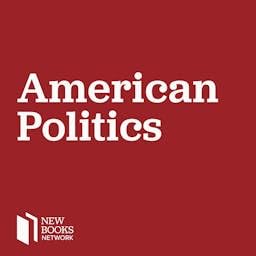Settler Colonialism is the Disaster: A Critique of New Orleans After Hurricane Katrina and During the COVID-19 Pandemic (U Illinois Press, 2026) is the new book from Dr. Cassandra Shepard, Assistant Professor in the Department of African American and Diaspora Studies at Xavier University of Louisiana. Published with University of Illinois Press, this encompassing and engrossing book focuses on the crises that have engulfed New Orleans, including the disasters of colonialism, Hurricane Katrina in 2005, and COVID-19, taking the reader through their causes and impacts on not only a broad level but through the everyday and often traumatic experiences of the residents of New Orleans. The analysis moves from the Lower Ninth Ward in New Orleans, to state-level post-disaster reconstruction contracts, to international forms of colonialism, and even encompasses Beyonce. This book, which is also includes poetry and a recommended playlist, is also very relevant to the current global moment. Shepard analyses the overlapping and intersecting disasters that have affected New Orleans through ideas of disaster capitalism and settler colonialism, demonstrating how Black and Indigenous peoples have been deprived of critical resources. The reconstruction processes following, and during, these crises have often sought to exploit the authentic New Orleans culture and vibrancy to further the consolidation of power, profit, and privilege of white elites, to the detriment of Black and Indigenous peoples. Shepard’s book, Settler Colonialism is the Disaster, takes a multi-scalar view of settler colonialism and investigates how it has not only operated historically in New Orleans, but clearly demonstrates that it is a continual process that still determines reconstruction, relief, and other projects today. Shepard connects the ongoing violence and dispossession inherent in settler colonialism within New Orleans, expressed through structural responses to Hurricane Katrina and COVID-19, to other settler colonial projects around the world, such as in Canada, Israel, New Zealand, and Australia. Cassandra Shepard’s new book is an exceptional, theoretically and empirically rich book that offers a new critique into ‘best practice’ reconstruction, which demands attention. Settler Colonialism is the Disaster offers an urgent, critical view of the political economy of reconstruction, aid, and government responses; a view which is crucial to take seriously in our world today, plagued as it is by crisis, war, and settler colonialism. Elliot Dolan-Evans is a sessional lecturer in law at Monash University and RMIT. His research investigates the political economy of global capitalism, forms of international governance, and questions of war and peace. His first book, Making War Safe for Capitalism: The World Bank, IMF and the Conflict in Ukraine, is now out with Bristol University Press. Learn more about your ad choices. Visit megaphone.fm/adchoices
Show More
Show Less
 Feb 27 202647 mins
Feb 27 202647 mins 55 mins
55 mins Feb 24 20261 hr and 7 mins
Feb 24 20261 hr and 7 mins Feb 21 202653 mins
Feb 21 202653 mins 45 mins
45 mins 58 mins
58 mins 1 hr and 4 mins
1 hr and 4 mins 50 mins
50 mins
